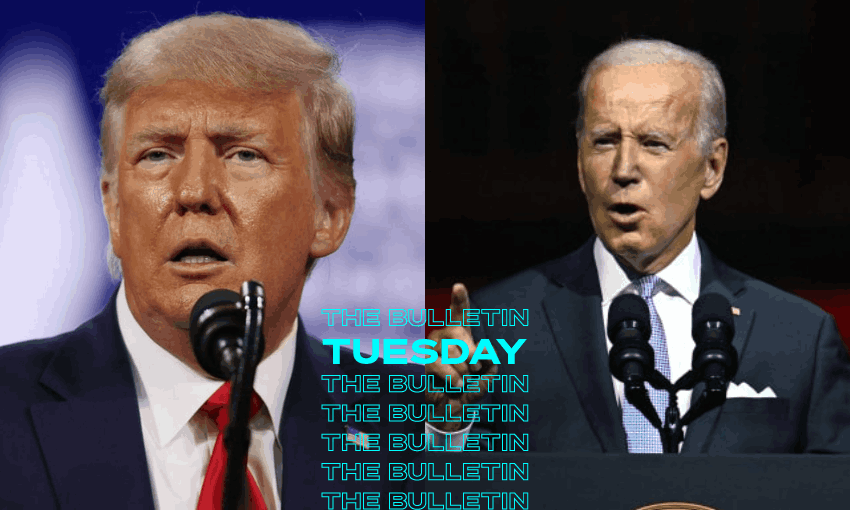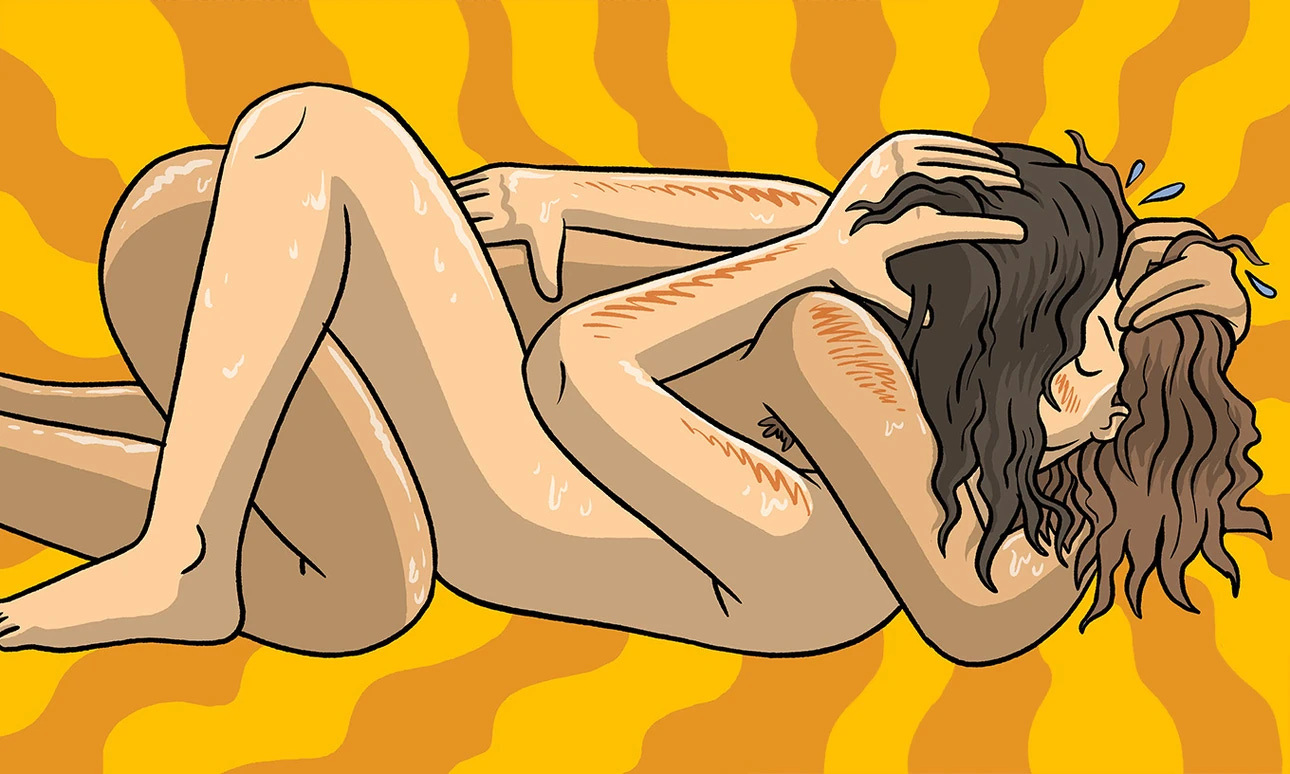Biden and Trump make final pitches as election day in the US approaches
US midterm elections don’t gain as much attention as presidential elections but there’s a lot of stake in 2022 for the US and foreign policy and climate change implications for the rest of the world
Mōrena and welcome to The Bulletin for Tuesday, November 8, by Anna Rawhiti-Connell. Presented in partnership with Z Energy.
In today’s edition: Chris Parker and Eli Matthewson want to have the talk; National wants a probe into bank profits and monetary policy; report due Friday on next stage of Three Waters; but first, the US midterm elections and why they matter
Both Trump and Biden are on the campaign trail as election day approaches (Images: RNZ/Getty/AFP)
What are the midterms and how might they make Biden’s remaining term difficult?
Where to start with the US midterm elections? To kick off, the New York Times has this very good explainer. To summarise –the Democrats currently control both the House of Representatives (HoR) and the Senate. Predictions suggest the Republicans will take the HoR and the Senate could go either way. Loss of control of either will make the next two years of Joe Biden’s term very difficult. Election day is November 8 (US time) and campaigning is in its final stages with Biden and Donald Trump both out on the trail. The Washington Post analysed one of Trump’s rally speeches last week in Iowa, finding it contained 58 falsehoods. Twitter’s new owner, Elon Musk has endorsed the Republicans. More than 40 million Americans have voted early, pointing to the potential of record turnout and higher polarisation among voters.
The key races
Control in both the HoR and the Senate will likely be decided by a few tight races. Catherine McGregor has taken a look at some of the key races, including Pennsylvania, Arizona, Georgia and Ohio. Not all of the high profile races are for Congress seats. There are gubernatorial elections, as well as numerous other state and local elections. Former TV anchor Kari Lake is running for governor in Arizona. There is speculation that if Trump were to win the Republican nomination for the 2024 presidential election, Lake could well be a pick for vice-president on his ticket. This profile of Lake from The Atlantic is well worth a read and positions her as the new leading lady of Trumpism.
Estimates that up to half of Republican candidates are election deniers
Lake is one of a number of candidates who’ve been described as “election deniers”, perpetuating the idea that the 2020 presidential election was “stolen”. CBS estimates up to half of the Republican candidates for the midterms are election deniers. Fred Wertheimer, of non-partisan group Democracy 21, says “if election deniers lose their elections by narrow margins we can expect that they will reject the results and refuse to accept them”. Following the attack on Nancy Pelosi’s husband, the fear of violence breaking out if some of these candidates lose races and refuse to concede is very real.
Why the midterms matter for the US and for us
The Guardian has a very good outline of some of the big stakes issues. The results will have a hefty bearing on the 2024 presidential race and midterms are historically unkind to incumbent presidents. Biden may face pressure not to run in 2024 depending on the results. Globally, the outcome of the midterms could impact the support being provided to Ukraine. The Republican leader Kevin McCarthy has said Congress would no longer “write a blank check to Ukraine” if the party takes control. Reporters at Foreign Policy talk through the likely impact of results on US foreign policy here. Five major climate change initiatives are also at stake. The US is currently the second largest contributor to global emissions. The biggie, the Inflation Reduction Act, which provides for the largest investment in clean energy in US history, should be safe, requiring a two-thirds majority in both houses to dismantle it.
A message from The Spinoff’s founder and publisher, Duncan Greive
The Bulletin’s readers are the bedrock of The Spinoff, a community of nearly 40,000 who read Anna’s work every day and rely on it to help understand this country. We at The Spinoff rely on our audience too – you are by far our largest funders, and the only reason we exist at all.
I’m here to ask you for your help again. The cost of living crisis, which we have covered extensively, has hit us and our people too – at the same time as membership income has remained flat post-pandemic. Big tech has taken over the digital advertising market, making us need your donations now more than ever.
As we head into an election year in 2023, and with rumours of Rupert Murdoch returning to NZ surfacing just yesterday, I would love it if you would consider donating to help keep our independent, NZ owned and made journalism free for all. Please support The Spinoff today.
Chris Parker and Eli Matthewson want to have the talk
I understand that porn may not be a word you’re used to seeing in The Bulletin while you’re reading it over your coffee and corn flakes but if you read Madeleine Chapman's editorial yesterday, you’ll understand why The Spinoff is dedicating a whole week to discussing it. Each day this week, a new episode of Chris Parker and Eli’s Matthewson’s Porn Revolution will be released. As Netsafe explains, pornography is available online with little-to-no age verification. One in four young New Zealanders see porn by age 12. 71% of them weren’t even looking for it when they first saw it. To pursue an educative approach to pornography with young people, it can’t keep being shameful or stigmatised. Series director Kate Prior has also written a lucid and intelligent piece about why the crew involved decided to make the documentary series. Related: Chris Parker picked up the inaugural Topp Award (named for the Topp Twins) last night for his multi-platform and ongoing contribution to comedy this year.
Prime minister speaks on bank profits, National wants an investigation
During the post-cabinet press conference yesterday, the prime minister said banks weren’t demonstrating “social licence” by repeatedly making very high profits. There is no apparent policy solution or supermarket sector-style review on the table. The National party wants the government to investigate what's behind the banks’ earnings, specifically whether monetary policy decisions in response to Covid have played a role. Stuff’s Rob Stock has broken down how it is that banks profit while households and businesses struggle. Debate about bank profits is not new but it really prompts responses based on texts to RNZ’s Checkpoint last night. Some people think the profits are obscene while others equate bank profitability with security and stability (a lot of us probably have some vested interest in the Australian banks via our retirement savings schemes). RNZ’s The Detail did a whole episode on bank profits last week which is worth a listen.
Three Waters report due Friday
As Stuff’s Philippa Tolley explains, a report out on Friday from the Finance and Expenditure select committee will move Three Waters closer to implementation. Submissions were made earlier this year on the Water Services Entities Bill. The committee will report back with its recommendations after considering those submissions. The bill sets up the four publicly-owned water entities designed to provide water services. It’s one of the core pillars of Three Waters. The alternative plan presented by the mayors of Auckland, Christchurch and Waimakariri last week would allow regions to decide how big their new entities would be, rather than running with the four regional entities that would be created via this bill.
Click and collect
Smokefree impact of removing nicotine ‘massively overestimated’
COP27: Emmanuel Macron backs climate compensation, says climate targets will not be sacraficed because of war in Ukraine
MPs join forces calling for shorter days at Parliament
Anti-Money Laundering and Countering the Financing of Terrorism (AML/CFT) Act needs major improvement (paywalled)
The best places to see tonight’s blood moon
Got some feedback about The Bulletin, or anything in the news? Get in touch with me at thebulletin@thespinoff.co.nz.
If you liked what you read today, share The Bulletin with friends, family and colleagues.
Studies show most young people will have seen porn well before they start actually having sex. The Side Eye looks at what you need to know about the difference between the two. Stewart Sowman-Lund traces a timeline of the Mister Organ saga as David Farrier's new documentary premieres amid legal action against him. Ben Gracewood brings news of a Musk-free alternative to Twitter. Emily Writes tries the dish that got James Corden banned from a fancy restaurant.









